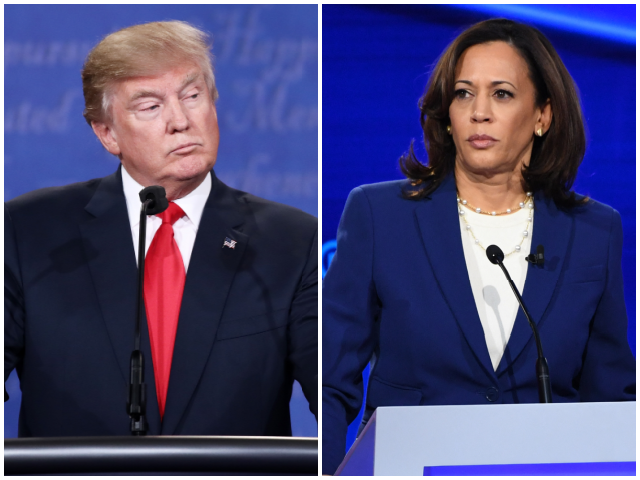America’s 33 million small businesses are tuning into tonight’s presidential debate between Vice President Kamala Harris and former President Donald Trump to see which candidate will better help their business survive and thrive. According to the Job Creators Network’s latest nationwide SBIQ poll of small business owners, two-thirds of respondents say the nation’s current economic conditions could force them to close.
Small businesses want to know which candidate will fix the cost of living crisis burdening the middle class. Discretionary spending drives the economy, and consumers are pulling back due to affordability concerns.
Restaurants have had a particularly difficult time passing on wholesale inflation to their customers, who have increasingly responded by eating at home. Credit card debt is at a record high, and the savings rate is at a record low.
Kamala Harris will treat the stage tonight as if it’s fit for Broadway, not a debate, and do her best acting of a moderate. She will pretend she hasn’t been in office for nearly four years and isn’t responsible for the 20 percent-plus inflation under her watch due to her tie-breaking votes for trillions of dollars in inflationary spending.
The moderators should ask Harris how her radical environmental agenda, including support of the Green New Deal, would raise energy costs by reducing oil and gas supply. Look to her home state of California, where electricity and gas cost twice the national average, as a coming attraction of what’s to come under a Harris presidency.
Harris has also never met a regulation she didn’t like. According to a Job Creators Network (JCN) report, the Biden-Harris administration has issued a whopping 923 new rules in just over three years at a cost of $1.6 trillion. These regulations drive up costs for small businesses and consumers alike.
Harris will likely try to pivot from cost concerns during the debate by pointing to moderating inflation rates. But these don’t change the fact that absolute price levels are still growing and inflicting pain.
For instance, electricity prices, which are a major small business cost, rose by five percent over the last year. But real electricity prices have increased from 14 cents per KWH to 18 cents (30 percent) during the Biden-Harris administration (and continue to rise). JCN put up new Times Square billboards today to highlight this Kamala misery gap.
By contrast, Trump would reduce energy and regulatory costs by following a drill baby drill energy dominance policy and promising to eliminate ten regulations for every new one. Entrepreneurs will be looking for this message loud and clear tonight.
A small business lifeline over the turbulent past four years has been the Tax Cuts and Jobs Act. This 2017 legislation ushered in a new 20 percent tax deduction for small businesses in addition to lower rates and immediate expensing. The debate moderators should ask Harris to explain how her promise to let these tax cuts expire squares with her promise not to raise taxes on the middle class. Harris can’t have it both ways.
The end of these tax cuts, combined with Harris’s plans to add $5 trillion of new taxes, would grind small business creation and the American economy to a halt. By contrast, Trump’s plan to make the Tax Cuts and Jobs Act permanent and cut corporate taxes from 21 percent to 15 percent would generate a small business boom.
Small businesses will be looking for clarity on these economic issues that will determine their and their families’ future at tonight’s debate. So far, the media has succeeded in muddying Harris’s positions to make her seem like a moderate. The debate offers Americans the chance to see Harris without the many Instagram-style filters she’s benefitted from.
Alfredo Ortiz is CEO of Job Creators Network, author of “The Real Race Revolutionaries,” and co-host of the Main Street Matters podcast.

COMMENTS
Please let us know if you're having issues with commenting.